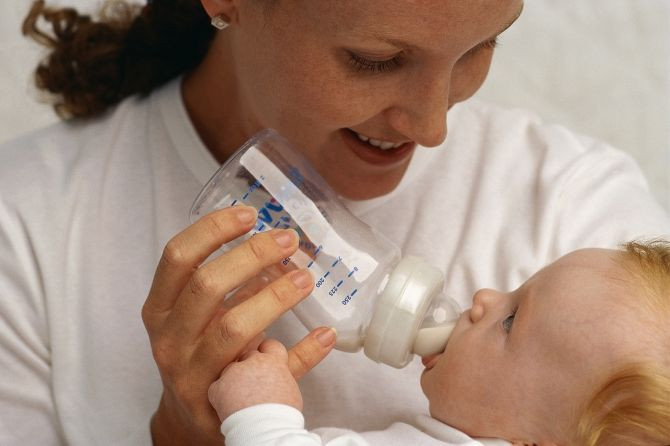FDA Bans BPA in Baby Bottles and Sippy Cups

Federal regulators said Tuesday that baby bottles and sippy cups can no longer contain Bisphenol-a, or BPA.
The request to ban the chemical in baby products was made by the U.S. chemical industry's chief association, the American Chemistry Council, last October after they found that industry manufacturers of bottles and sippy cups had already abandoned the chemical because of safety issues.
Past research has linked BPA to increased risk of certain types of cancers, diabetes, reproductive abnormalities and heart disease.
"Consumers can be confident that these products do not contain BPA," FDA spokesman Allen Curtis said in a statement, adding that the regulatory decision was based on the bottle industry's phase out of the chemical. "The agency continues to support the safety of BPA for use in products that hold food."
ACC's request to for FDA to officially ban the chemical may help reduce the years of negative publicity from consumer groups and lead to BPA being banned from other types of packaging due to health concerns.
Some members of Congress have already introduced some bills calling to ban BPA nationwide in all canned food, water bottles and food containers.
However, chemical manufacturers still maintain that the organic compound used to harden plastic products, is safe for all food and drink uses.
The chemical is found in everything from water bottles to CDs to dental sealants, and some researchers say that ingesting BPA can interfere with the reproductive and nervous systems in infants and young children after experimenting with the chemical's effects on rodents and other animals.
However, the FDA has repeatedly said that findings on rats and other mammals cannot be applied to humans, and the federal government is now spending tens of millions of dollars on its own research to evaluate the chemical's health effects on humans, according to AP.
According to AP about 90 percent of Americans have traces of the chemical in their urine, mostly because BPA seeps out of packaging like cans and bottles into food and beverages. BPA has been used by manufactures to seal canned foods to prevent contamination and spoiling since the 1950s.
Published by Medicaldaily.com



























